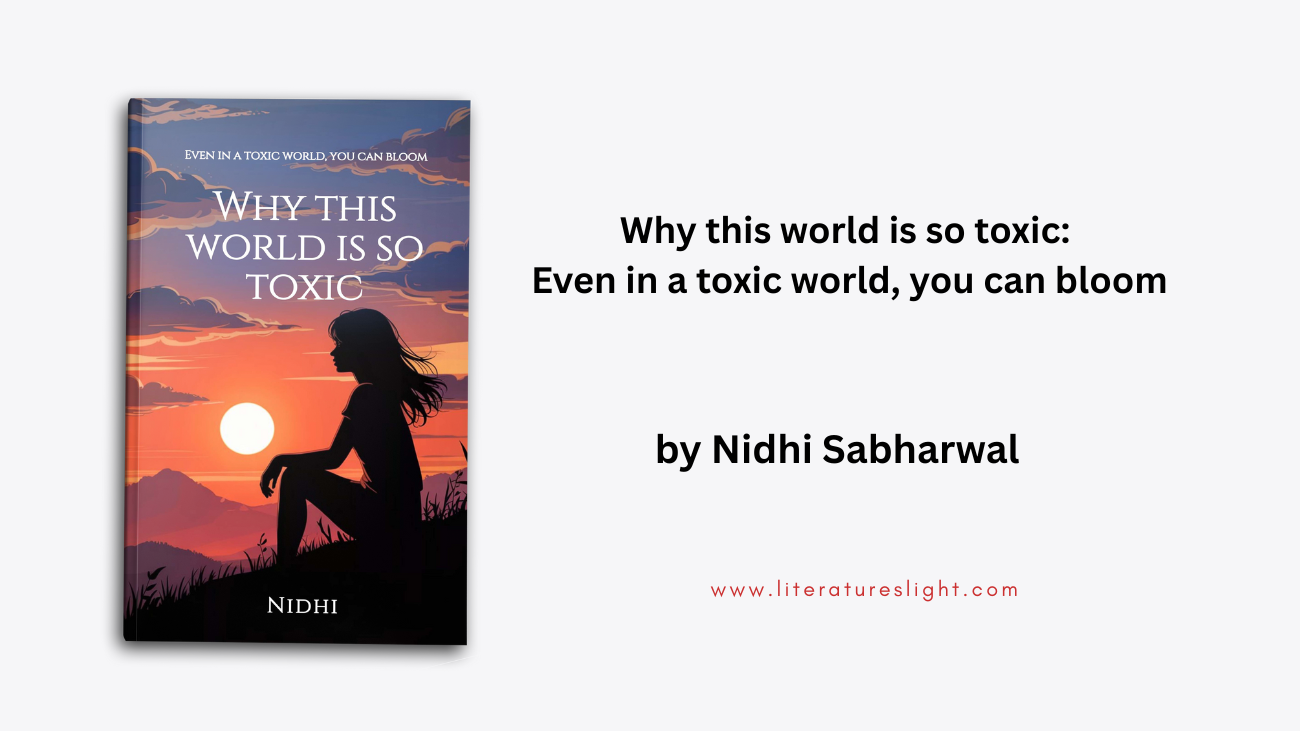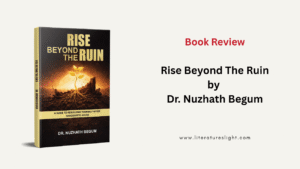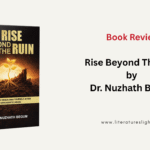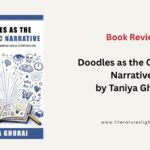Why This World is So Toxic: Even in a Toxic World, You Can Bloom
Living in a World of Emotional Struggles
In today’s fast-paced, competitive, and often unforgiving world, many people are silently battling emotional struggles that seem invisible to the outside eye.
Nidhi Sabharwal’s new book, Even in a Toxic World, You Can Bloom, shines a much-needed spotlight on the hidden emotional pollution we live with daily — and shows how growth is still possible, even in harsh environments.
The Silent Effects of Toxicity on Mental Health
We often find ourselves trapped in cycles of comparison, judgment, and unkindness.
Social media paints unrealistic pictures of perfect lives, fake success stories dominate conversations, and society often measures worth based on shallow achievements. In such a world, it’s no surprise that feelings of sadness, anxiety, and low self-worth have become so common.
Nidhi Sabharwal delves into these emotional struggles with a gentle but unflinching honesty. She talks about how toxic relationships, societal expectations, and the lack of genuine empathy chip away at our mental health.
Choosing Healing Over Hurt
Rather than merely pointing out the darkness, Nidhi’s book offers a path toward healing.
She emphasizes the importance of acknowledging pain instead of suppressing it. True healing, she argues, starts with acceptance.
Instead of chasing hollow versions of success crafted by society’s standards, she encourages readers to define happiness and fulfillment for themselves.
The Power of Setting Boundaries
One of the most powerful themes in Even in a Toxic World, You Can Bloom is the idea of setting healthy boundaries.
In a world that constantly demands more — more time, more attention, more compliance — learning to say no is an act of self-love.
Setting boundaries protects our peace and preserves our mental health.
Finding Strength in Real Connections
The book also touches on the need for real connections.
In a world obsessed with appearances, genuine relationships based on empathy, trust, and kindness are like oxygen.
Nidhi reminds us that it’s okay to ask for help and that everyone deserves to be heard, loved, and understood.
A Writer Who Writes to Connect, Not Impress
Drawing from personal experiences, Nidhi shares advice that feels heartfelt rather than preachy.
Her background as a second-year law student at Indira Gandhi University, and a Political Science graduate from Dyal Singh College, Delhi University, gives her a unique perspective.
She doesn’t claim to be an expert or a seasoned author — she simply offers a voice to emotions many people carry but rarely express.
Embracing Vulnerability and Healing
What sets this book apart is its authenticity.
Nidhi’s writing is not aimed at impressing the reader; it’s meant to connect.
She bravely speaks about topics that are often brushed under the carpet — the silent pain, the feelings of not being enough, the emotional exhaustion from trying to meet everyone’s expectations.
Through simple, honest words, she gives readers permission to embrace their vulnerabilities and imperfections.
She advocates for kindness — not just towards others, but toward oneself.
Blooming Despite the Toxicity
In a world that often measures people by their productivity, appearances, or popularity, Even in a Toxic World, You Can Bloom is a much-needed reminder that personal worth is intrinsic.
You are enough, even when you’re struggling. You are valuable, even when you’re healing.
At its core, Nidhi’s book is a beacon of hope.
It tells us that despite the toxicity around us, we have the power to bloom.
Healing isn’t instant; it’s a journey of finding peace within ourselves.
It’s about being kind to our own hearts, building authentic relationships, setting healthy boundaries, and choosing self-love over societal approval.
If you have ever felt overwhelmed by the emotional weight of the world, Nidhi’s heartfelt reflections will resonate deeply with you.
Even in a Toxic World, You Can Bloom is more than a book — it’s a gentle hug to your soul, a reminder that even amid the harshest storms, you have the strength to grow.






